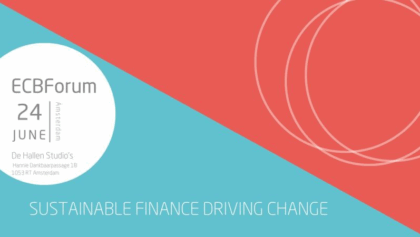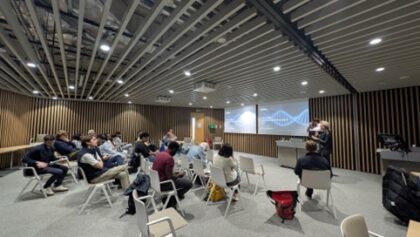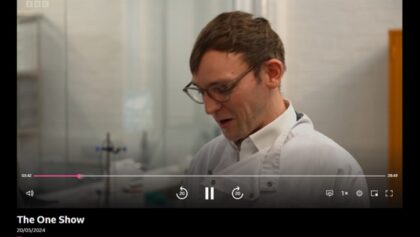
News & Events
News
Stay updated with the latest news, insights, and developments in engineering biology
 22nd July 2025
Bridging Borders and Briefing Leaders
3 min read time
Continue reading
22nd July 2025
Bridging Borders and Briefing Leaders
3 min read time
Continue reading
 21st July 2025
BBC highlight Better Dairy
1 min read time
Continue reading
21st July 2025
BBC highlight Better Dairy
1 min read time
Continue reading
 4th July 2025
Why Generalists Hold the Key to Net Zero: Insights from Jamie Coldwell
4 min read time
Continue reading
4th July 2025
Why Generalists Hold the Key to Net Zero: Insights from Jamie Coldwell
4 min read time
Continue reading
 24th June 2025
European Circular Bioeconomy Forum – Amsterdam
2 min read time
Continue reading
24th June 2025
European Circular Bioeconomy Forum – Amsterdam
2 min read time
Continue reading
 20th June 2025
Kitney on Capital: The investment landscape for Engineering Biology in 2025
4 min read time
Continue reading
20th June 2025
Kitney on Capital: The investment landscape for Engineering Biology in 2025
4 min read time
Continue reading
 6th June 2025
Why Synbio. Why Now?
3 min read time
Continue reading
6th June 2025
Why Synbio. Why Now?
3 min read time
Continue reading
 20th May 2025
Business Basics Course
1 min read time
Continue reading
20th May 2025
Business Basics Course
1 min read time
Continue reading
 20th May 2024
BBC highlight Modern Synthesis
1 min read time
Continue reading
20th May 2024
BBC highlight Modern Synthesis
1 min read time
Continue reading
 11th May 2024
BBC Click Combatting Cancer
1 min read time
Continue reading
11th May 2024
BBC Click Combatting Cancer
1 min read time
Continue reading
Loading